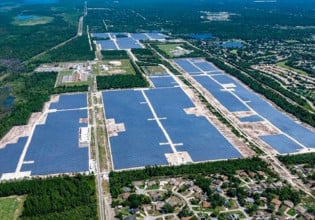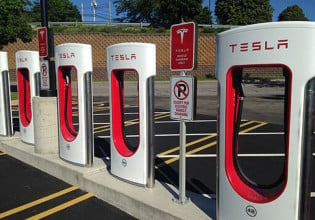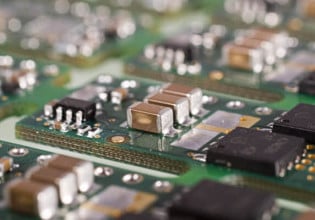Concerns Mounting Over DOE Funding of Green Energy Companies as Beacon Power Files for Bankruptcy and Ener1 Possibly Next to Go Under
Beacon Power, a company that makes energy-storing flywheels, and which received a $43 million loan guarantee from the U.S. Department of Energy (DOE) last year, has filed for bankruptcy. The government funding came from the same DOE program that supported failed solar-panel maker Solyndra.
The DOE funding supported Beacon Power’s flywheel facility in Stephentown, N.Y., which started operating in January. However, earlier this month, Beacon Power received a delisting notice from the Nasdaq, after its stock had traded below $1. In its Chapter 11 bankruptcy filing, the company listed total assets of $72 million and total debts of $47 million. The company employs 65 people.
Beacon Power CEO William Capp apparently referenced the recent controversy over federal funding for clean energy companies, stating, "The current economic and political climate, the financing terms mandated by DOE and Beacon’s recent delisting notice from Nasdaq have together severely restricted Beacon’s access to additional investments through the equity markets.
Similar to Beacon’s woes, now lithium battery maker Ener1 has also been delisted by Nasdaq. Ener1 had replaced its CEO earlier this year and announced it would have to re-state a quarterly filing after saying previous statements should not be relied upon. The company has also experienced problems after the bankruptcy of electric car maker Think Global. Ener1 had a minority stake in the company. Further complicating matters for the company, Ener1 is also facing legal action from people claiming it was not forthcoming with details about the company’s financial status.
As the green energy failures begin to pile up, questions about the DOE’s ability to properly fund (or whether they should at all) the green energy movement continue gain momentum as well. It will only get worse particularly if Ener1 files for bankruptcy, which some observers are expecting to happen any day now.
In response to the growing public and media scrutiny, the DOE is "monitoring the situation" and issued the following release in regard to Ener1:
"This is one of 30 new advanced battery and electric vehicle component plants that the Administration has invested in across the country, creating the potential for tens of thousands of direct and indirect jobs.
"EnerDel, whose parent company is Ener1, received a grant – not a loan – through the Recovery Act for $118.5 million to expand an existing battery manufacturing facility and upgrade its equipment and build a new facility with new equipment. The project has received broad bipartisan support and to date has progressed according to schedule and on budget. EnerDel is to provide a 50% cost share, or $118.5 million of their own funds, for a total project value of $237 million.
"The Department is closely monitoring the status of the company. So far $55 million of the grant has been paid out to EnerDel. Any additional funds received from the government would need to be matched dollar for dollar with their own investment."
More news and information regarding the latest developments in Smart Grid electronics can be found at Darnell’s SmartGridElectronics.Net.






